2008 National Championships of Great Britain - 108 Useless facts and figures
7-Oct-20084BR has updated our useless facts and figures for you. So if you are bored between bands try and find the year when a monkey orchestra and its conductor was a main attraction at the venue (and they were not competing!)
You never know – there may be something in here to get you boring your friends (if you have any) down the pub after practice.
Just wait for the first remark of "... get a life". 108 facts and figures - 1 for every year since 1900.
All you really wanted to know about the National Championships of Great Britain and some of the strange facts that accompanied the contest over the years.
We have everything from a Monkey Orchestra to Black Dyke and beyond.
1. The first Championships took place on Saturday 21st July 1900 at the Crystal Palace, London. The first band ever to perform were Aberdare Town, from South Wales conducted by J. Manley playing the test piece "Beauties of Sullivan". All the names of the performers were included from each of the bands.
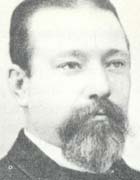 2. The first winners were Denton Original conducted by the great Alex Owen who beat Black Dyke into second place and won the princely sum of 75 guineas and the famous £1000 trophy. There were actually three contests on the day – The First, Second and Third with bands such as Black Dyke and Besses in the top section, Luton Red Cross and Boarshurst in the second, and the likes of St. Pancreas, Crouch End and Derby Sax Tuba in the third!
2. The first winners were Denton Original conducted by the great Alex Owen who beat Black Dyke into second place and won the princely sum of 75 guineas and the famous £1000 trophy. There were actually three contests on the day – The First, Second and Third with bands such as Black Dyke and Besses in the top section, Luton Red Cross and Boarshurst in the second, and the likes of St. Pancreas, Crouch End and Derby Sax Tuba in the third!
3. The Championships were the brainchild of John Henry Iles who set up the contest to demonstrate what brass bands could musically achieve and to help the "Absent Minded Beggar Fund"
4. This fund was set up to financially assist veterans of the Boer War who had fallen on hard times. At the same time of the first contest, the great attraction in the Crystal Palace South Nave was Leoni Clarke "The Cat King" with his marvellous collection of cats, rats, canaries, rabbits, monkeys and cockatoos – "The sight of a lifetime it was called". Wowee!
5. The results were announced in reverse order at the very first contest after the "Great Concert" later on the same day, when the public had paid 6d admission.
6. The full names of the players in the winning Denton Band are still available and include the repiano player, Elia Shaw Jnr, who subsequently moved to South Wales and became Principal Cornet of Tredegar Workingmen's Town Band.
7. The £1000 Guinea Trophy now resides in the Welsh Museum of Life at St. Fagan's outside Cardiff. It's not allowed to be moved, but has been the subject of a contest in it's honour in the early 1990's. The winning band was allowed to have its photograph taken with it, but not allowed to take it home with them!
8. The second Finals took place in the September of the following year when Lee Mount won off a number 3 draw in a 27 strong field playing "Gems of Sullivan's Opera No 3". They were awarded 127 points and secured a two-point victory over Irwell Springs.
9. Black Dyke's first victory came in 1902 when they completed the first "Double" after taking the Open earlier in the year. They won with 140 points and with a five point winning margin from Wyke. The famous John Gladney conducted. Once more there were four sections to the contest. The Second Section included such bands as Ystalyfera, Holme and Linthwaite (all going strong today), whilst the Third included Raunds Temperance, Trebanos Silver and Bestwood. The Fourth had great bands such as Lavender Hill Temperance, Pinxton Colliery and Eastwood Ambulance.
10. Alex Owen completed his second win with Besses O' th' Barn in 1903 when he also conducted the band that came second, Rushden Temperance. He also had the baton for Irwell Bank, Kettering Rifles, Kingston Mills, Lee Mount, Rotherham Borough and Rushden Temperance. Busy man.
11. The Abertillery Band (still going strong in South Wales and now in the 4th Section) came 5th in 1904, beating Black Dyke Mills in 6th place. What ever happened to them? Meanwhile some of the other attractions on the day included Sir Hiram Maxim's "Captive Flying Machine" – "The Sensation of the Age"! and the "Great Open Amateur 50 mile walking record". Exciting times eh?
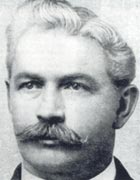 12. William Rimmer conducted 5 of the top 6 bands at the 1906 contest (only 5th placed Goodshaw spoilt it). He also conducted three other bands at the contest on the same day. The main attraction in the Chinese South Nave was Maud Rochez and her "Amazing Performing Monkeys!" which stated included "A Variety Theatre" performed entirely by Monkeys!" – including a monkey orchestra, a monkey foot equilibrist, the monkey motor car and the best ever - the monkey conductor – we kid you not.
12. William Rimmer conducted 5 of the top 6 bands at the 1906 contest (only 5th placed Goodshaw spoilt it). He also conducted three other bands at the contest on the same day. The main attraction in the Chinese South Nave was Maud Rochez and her "Amazing Performing Monkeys!" which stated included "A Variety Theatre" performed entirely by Monkeys!" – including a monkey orchestra, a monkey foot equilibrist, the monkey motor car and the best ever - the monkey conductor – we kid you not.
13. In 1909 Rimmer completed a nap hand of five consecutive victories at the contest, which was achieved conducting three different bands. He never conducted at the contest again. The other attractions still included "The Captive Flying Machine", the new craze – "Houp – La", and "Babs" the smallest elephant in the world. The big football match later that day was Crystal Palace against Southend United.
14. His success was overtaken by William Halliwell who won his first of six in a row in 1910 (the first four with different bands). He went on to win a total of 11 titles. Big events that year at the Palace included "Iolanthe" by the D' Oyly Carte Company, whilst the results were announced at the end of the Gala Concert and displayed on the screen behind the bands. Nothing new in the world is there?
15. The famous St. Hilda Colliery Band won their first title in 1912. They subsequently won it again on four occasions before being barred as being a "professional band." The event also included the Junior Cup Section, the Preliminary Shield Section, Preliminary Cup Section and Consolation Cup Section, Reed Band Section and Boy's Band Section. The football game that day was Palace versus West Ham in the Southern League – given their current form, history is in danger of repeating itself here as well.
16. Irwell Springs won the last contest before the Great War in 1913, playing the first ever-original brass band contest composition, "Labour and Love" by Percy Fletcher. The Gala Concert featured the bands of Black Dike (as they were called), Luton, St Hilda, Spencer Works, Irwell Springs, Crossfield Soap Works and Fodens. The star of the concert though was the singer Miss Marie Ladelle, whose photograph in the programme showed her to be cross eyed!
17. There were no contests during the War years, but the contest was revived in 1920 when St. Hilda won playing "Coriolanus" by Cyril Jenkins from a field of 18. They took home with them 100 guineas prize money. The Crystal Place though had an exhibition of the Great War. John Henry Iles was the main man in charge and had bracketed after his name (Officier d'Academie Francaise).
18. William Halliwell equalled William Rimmer's effort of 1909 when he conducted five of the top six in 1921. He also took two other bands on the day. The contest was also the first to come Royal Patronage as the King himself gave his blessing. There is no record if he actually tuned up to listen though – some things never change.
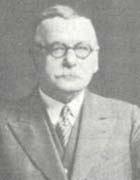 19. Halliwell does it again in 1923 as he takes Luton Red Cross to the title (with a little help from certain Mortimers). He takes the first five places with his bands, but Hebden Bridge and Wingates – his sixth band and seventh bands of the day come nowhere. The souvenir programme is a lovely affair – colour with plenty of great information about the attractions. These included the opportunity for budding cornet players to buy the "Biggest Sensation of the Day" – the cornet solo "Yes We Have No Bananas". Fancy hearing Roger Webster playing that?
19. Halliwell does it again in 1923 as he takes Luton Red Cross to the title (with a little help from certain Mortimers). He takes the first five places with his bands, but Hebden Bridge and Wingates – his sixth band and seventh bands of the day come nowhere. The souvenir programme is a lovely affair – colour with plenty of great information about the attractions. These included the opportunity for budding cornet players to buy the "Biggest Sensation of the Day" – the cornet solo "Yes We Have No Bananas". Fancy hearing Roger Webster playing that?
20. 1923 sees bands perform for the first time in the now traditional formation. Before this they stood in a square formation. There was also a copy of a painting entitled "Sons of the Brave" in the programme – which featured a children's military band. Perhaps the inspiration for the famous march?
21. Black Dyke's second win comes in 1928 when Halliwell takes them to the title from a number 4 draw in a field of 16. Strangely the band only gets 50 guineas for their troubles in playing "A Moorside Suite" by Holst. You could also buy a Bb trumpet from Keith Prowse Ltd for 47 shillings and sixpence, whilst there were five other sections as well as the Championship contest going on elsewhere on the day. One great advert for a double cup mouthpiece stated "top notes made easy for false teeth!"
22. 1924 sees the Newcastle Steel Works Band from Australia compete at the Nationals. They had won the Open just a month prior at Manchester but they could only manage third place at the Nationals. The band won 100 pounds, whilst the winner of the Great Boxing Tournament the following month would win £500.
23. St. Hilda Colliery were barred completely after their last win 1926 and subsequently never competed again. Horwich RMI also disappeared just four years after they too won the title.
24. CWS Glasgow nearly become the first winners to take the title out of England in 1929 when they come second to Carlisle St. Stephens. They have to wait until 1990 to finally achieve it. In the programme Jack Mackintosh advertised the "Clippertone" cornet and there was a full page copy of the painting of the Prince of Wales cairn terrier called "Cora" – all together now – aaaahhhh
25. The Foden's Motor Works hegemony starts in 1930 with the first of their seven victories in nine years under the baton of Fred Mortimer. It was Elgar and the "Severn Suite". You could also buy copies of previous recordings of winning performances from Regal Records for 2 shillings and sixpence.
26. A new band called Munn and Felton's take the title in 1935 when Foden's are barred to give William Halliwell the last of his National victories. The big selling march for 2 shillings and sixpence was called "Blighty", whilst the News Chronicle newspaper featured the six members of the Murray family who played for the Thornley Colliery Band at the Junior Cup.
27. The Crystal Palace, the venue of the contest since it's inception burnt down in 1936 and the venue for the contest changed to the Alexandra Palace in London for the first time on the 25th September 1937. Foden's won of course. The programme cover features a portrait of His Majesty King Edward VIII who wasn't around much longer was he? Next year his brother George VI was on the cover.
28. The Second World War stops the contest in 1939 when the bands were to perform "Clive of India" by J. Holbrooke on the 23rd September.
29. The Contest is revived in 1945 under the banner of "The Daily Herald" newspaper and Regional Contests are introduced for the first time. The programme is a miniature one – for sixpence, whilst the top prize was 200 guineas and the prizes were given out by Lord Southwood no less.
30. Prior to this, bands were invited to compete at the contest each year – in much the same way as the British Open.
31. Fodens however are barred from the 1945 Contest on the grounds that they had achieved the "Hat trick" in 1938!
32. The 1945 Contest takes place at the Royal Albert Hall – the third venue for the contest since it's inception.
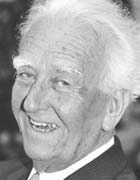 33. Fairey Aviation win by five clear points under the baton of Harry Mortimer from Horden Colliery and Parc and Dare. A young man called Eric Ball conducts Brighouse and Rastrick into fourth place, 11 points behind the winners.
33. Fairey Aviation win by five clear points under the baton of Harry Mortimer from Horden Colliery and Parc and Dare. A young man called Eric Ball conducts Brighouse and Rastrick into fourth place, 11 points behind the winners.
34. The following year Eric Ball conducts Brighouse to the title (their first) and his only conducting success at the contest. He appears in other forms however over the forthcoming years. The programme also reveals the winners of the Regional Contests for the year. These include Camborne in the West, Dyke in the North Eastern Area, Luton in London and Gwaun Cae Gurwen in Wales.
35. The contest moves from September to October in 1945, although it goes into November a few years later for a short while.
36. The first of Black Dyke's first ever National's "Hat trick" comes in 1947, when Harry Mortimer leads them to victory over Fairey (who he also conducts) and his father and Foden's in third place. The programme includes a short article entitled "Brass Bands – A vital Influence in the Cultural Life of the People". Interesting reading then.
37. 1948 sees Fred Mortimer's last appearance at the Finals when he takes CWS (Glasgow) off a number 13 draw. They come out of the prizes. The massed band concert is made up of all fifteen competing bands on the day. The noise must have been bloody deafening, whilst the programme article was entitled "I'm still surprised" by Tyrone Guthrie – we bet he was.
38. Fred Mortimer has a record of seven victories at the contest – all with Foden's. He made his first appearance in 1929 when they came out of the prizes. In addition to the seven victories he also gets a third and a sixth.
39. Fodens's reclaim the title they last won in 1938 when Harry Mortimer takes them to victory in 1950 on "Pageantry". In 1937, his father had conducted the band to victory on the same piece.
40. Alex Mortimer continues the family success story in 1951 when he masterminds Black Dyke to their fourth title in five years and beats his brother into second place to boot. The Grand Festival Concert included a full page programme picture of the Lord Mayor and his wife complete with cat, whilst the concert featured a duet by "Bandsmen of Tomorrow" Ian Gladstone and Brian Matthew of Besses Boys Band. Whatever happened to them?
41. Harry decides that this must stop and wins the next four contests with Fairey's, Fodens and Munn and Feltons.
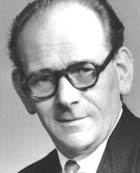 42. Alex also repeats the feat of his brother by conducting Black Dyke to victory in 1951 on "Epic Symphony", the same piece that his father had tasted victory with in 1938.
42. Alex also repeats the feat of his brother by conducting Black Dyke to victory in 1951 on "Epic Symphony", the same piece that his father had tasted victory with in 1938.
43. Some bands that took place in the Finals before each of the Wars had strange names. What ever became of Hucknell Temperance, Rise Carr, Crooke, Ferndale, Silverdale, Gossage Soap Works, Tonyrefail and Barton Cycle Works after World War One?
44. Linthwaite Band became the first and only band to be disqualified at the Finals in 1906 – for what we are not sure.
45. And what happened to bands such as Upper Norwood, Birtley St. Josephs, Metropolitan Works, Gwauncaegurwen, Baxendales, Blyth LNER, Manvers Main and Bradford City – all of whom played before the Second World War.
46. Gwauncaegurwen actually came 6th at the Nationals in 1950 – they were the premier band in Wales in those days! They are still going strong in the lower sections in Wales today.
47. Harry Mortimer wins the contest for the last time in 1955 with Munn and Feltons off a 19 draw. His record stands at nine victories – two more than his father. The media covered the contest by providing five programmes on the Saturday itself on the radio and one on the Sunday on the old "Home Service".
48. 1956 sees the first victory for the great Major George Wilcocks who steers Fairey's to victory over CWS (Manchester) on "Festival Music" by Eric Ball. He wins the title three times before he dies in 1962. The advert at the back of the programme is for Murray Mints – "Too good to hurry – they ignore bandmasters hints".
49. 1957 sees the first victory for Stanley Boddington who himself goes on to win the title four times. He steers Munn and Felton's to their third title success on "Variations for Brass Band" by Vaughan Williams. The programme back cover is for "Senior Service" cigarettes – Tobacco at its Best. Erm?
50. Foden's give Rex Mortimer – the third Mortimer brother the National title in 1958. It is Foden's last success at the contest until 1999.
51. The year of 1959 gives Black Dyke the title playing "Le Roi d'Ys". The performance becomes the stuff of legend.
52. Alex Mortimer conducts both Cooperative bands at the Nationals in 1960 to 5th and 6th place. As they were based in Manchester and Glasgow the travelling between rehearsals in a time before motorways were opened must have been awful. The winners were still paid in Guineas – 200 this time.
53. Major Willcocks last triumph with Black Dyke comes in 1961 when they take the title with a two point victory over CWS (Manchester) in a field of 27 bands. Karl Rankl was the guest conductor for the Gala Concert and the "Spotlight on Service" was on one Walter B. Hargreaves.
54. "The People" newspaper takes over the running of the Nationals from the "Daily Herald" in 1964, but it was a crisis time as in 1965 one in five bands withdrew from the Regional Contests. Karl Rankl was still there and the "spotlight" fell on William Wood who was presented with a baton of honour.
55. The contest was handed over to Vaughan Morris the following year, and he run it without sponsorship from that date. The programme also featured the "Revolutionary" Besson International Cornet – complete with triggers on both first and third slides. There was also a picture of Sousa's Giant Tuba measuring 6ft high, 3ft wide and made in 1896. It was played before the announcement of the results by Ron Snyder accompanied by the CWS Manchester Band.
56. The 1954 contest sees the only time in the contests history when five of the top six bands in the prizes play in the first seven in the draw. Numbers 6,4,1,7 and 2 in that order fill the places with band number 14 (Brighouse) coming fourth. The winners were Fairey.
57. The 1965 contest is won for the only time by Leonard Lamb with Fairey's. It also means that the band do the "Double".
58. The last Mortimer victory comes in 1962 with Alex and CWS (Manchester) winning on "Belmont Variations". In total the Mortimer clan win the title on no less than 20 occasions, including a period of nine years in a row from 1947 to 1955.
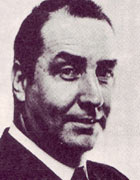 59. 1965 the Cammell Laird band under James Scott come runners up at the contest. In 1959 they had won the Fourth Section, in 1961 they won the Second Section before coming 4th at the Championship Finals in 1964. In 1966 they came 4th again and 6th in 1969. By the beginning of the 1970's however they were gone for good.
59. 1965 the Cammell Laird band under James Scott come runners up at the contest. In 1959 they had won the Fourth Section, in 1961 they won the Second Section before coming 4th at the Championship Finals in 1964. In 1966 they came 4th again and 6th in 1969. By the beginning of the 1970's however they were gone for good.
60. 1967 sees the first victory for a brass band playing the new "low pitched" instruments after Boosey and Hawkes had decided they would no longer produce "high pitched" instruments in the previous year. Black Dyke take the title on "Journey Into Freedom" under Geoffrey Brand.
61. The "Wee Professor" – Walter Hargreaves takes the first of his two National titles when he directs Brighouse and Rastrick to victory in 1968. It is the bands second title since their first way back in 1946. They beat their traditional rivals, Black Dyke into second place in a field of 25 bands.
62. 1969 sees Brighouse retain the title when they again beat Black Dyke into second spot playing "High Peak" in a 24 band field. Dyke are last band on, but can't do enough and lose by two points. The Insignia of Honour is awarded to Derek Garside.
63. 1969 sees the first Dutch band to take the Nationals stage when the Excelsior Band from Holland conducted by J. den Toonder play off number 3. It is not recorded where they come.
64. 1970 sees the introduction of the so-called "World Championships" which take place on the same day as the Nationals. Black Dyke take the title in a seven band field that includes Fairey who come second, GUS who come third, Brighouse, CWS (Manchester), Fodens and Concord Brass Band (Copenhagen) who supposedly represented the whole of the rest of the world.
65. The Nationals themselves do not include these bands and it's Grimethorpe who take the title under George Thompson, with a one point victory over Ransomes, then Hanwell and Shaftesbury Crusade of Bristol in a 16 band field. Lyndon Baglin receives the Insignia of Honour.
66. 1971 sees it happen again, but this time GUS take the title under Stanley Boddington playing "Energy" by Robert Simpson. They win the title by five points from Fairey. Brighouse are third, whilst the other "world" bands are Black Dyke, CWS (Manchester), Foden's and Grimethorpe.
67. The Nationals take place on the same day without these bands and Wingates take the title under Dennis Smith. It is the bands fourth National title, but the first since 1931. They also won in 1906 and 1907. They take the victory from City of Coventry, Cory and Hendon.
68. Back to the original set up in 1972 and Dyke win on "A Kensington Concerto" by Eric Ball, who is in the box. The three-point victory over GUS signals the end of an era at Dyke as many players leave to form James Shepherd Versatile Brass soon afterwards. Dyke win £500 for their trouble. Sponsorship of the event is taken by the British Bandsman, whilst Boosey and Hawkes launch their Sovereign instrument series.
69. The £500 first prize is the biggest leap in the prize money at the contest for many years. Up to 1966 the winners were still paid in guineas and from 1945 to 1966 it had remained at 200 guineas.
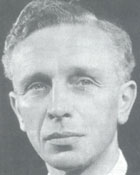 70. Eric Ball wrote the test piece for the Finals in 1956 "Festival Music", 1967 "Journey Into Freedom", 1969 "High Peak" and 1976 "Sinfonietta – The Wayfarer". He also adjudicated in 1960, 1962, 1965, 1967, 1969, 1971, 1972, 1973, 1975 and 1983. He also conducted the wining band in 1946, arranged the test piece for the 1978 Finals (Checkmate by Arthur Bliss) and judged at the World Championships in 1971. Some record. 2003 saw another arrangement of his used – this time "The Enigma Variations" (some of them anyway)
70. Eric Ball wrote the test piece for the Finals in 1956 "Festival Music", 1967 "Journey Into Freedom", 1969 "High Peak" and 1976 "Sinfonietta – The Wayfarer". He also adjudicated in 1960, 1962, 1965, 1967, 1969, 1971, 1972, 1973, 1975 and 1983. He also conducted the wining band in 1946, arranged the test piece for the 1978 Finals (Checkmate by Arthur Bliss) and judged at the World Championships in 1971. Some record. 2003 saw another arrangement of his used – this time "The Enigma Variations" (some of them anyway)
71. James Scott recorded his only National title success in 1973 on "Freedom" by Hubert Bath. They pip CWS (Manchester) to the title by a point off an early number 7 draw in a 19 band field. The "Spotlight" is on the great George Thompson, whilst you could buy a full set of brass instruments from Huttl of Bavaria – did anyone buy any?
72. The following year off the same draw as reigning champions, James Scott and Brighouse only manage to come 5th as Cory and Arthur Kenney become the first non English band to win the National title. They win by a clear two-point margin over Grimethorpe. The Insignia of Honour went to Teddy Gray and William Relton was in the box at Fulham Town Hall for the Third Section.
73. Grimethorpe were conducted on the day by Elgar Howarth, who although he never wins the title has a pretty good record of near misses. He comes second in 1974, third in 1972 and fifth in 1976.
74. The 1973 contest should have seen the bands play "Contest Music" by Wilfred Heaton. It is stopped, as it is believed to be too "modern" and replaced by "Freedom". It appears as the set test in 1982.
75. 1975 – 1977 sees Black Dyke reign supreme at the contest with a "hat trick" of wins – the first two by three point winning margins and the last by five points. Peter Parkes conducts a superb band that takes the title for a fourth time in five years in 1979 by another five point margin.
76. Peter Parkes has a phenomenal record of success at the Nationals since making his debut in 1975. He has won the contest on no fewer than seven occasions, the last in 1993.
77. Black Dyke's absence in 1978 sees Yorkshire Imperial Metals under Dennis Carr take the title for the only time in their history when they beat Besses O' th' Barn to take the trophy. Besses come second off the number 1 spot – the first time in the contests history that a band playing first had come in the first two places. Hammonds Sauce advertises their "Chop Sauce" on the back cover of the programme – perhaps it's a northern thing was it?
78. Dyke return in 1979 to take their fourth title and the increased prize money of £650 from Cory in second (five points behind). Tredegar in 6th place are 16 points behind the winners in 21 band field.
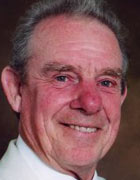 79. The 1980's start with an increase of the prize money to £2000 for the winners, who are Brighouse and Rastrick under Derek Broadbent who stop Black Dyke winning their fifth consecutive crown. Brighouse are drawn 19 and Dyke 20, but it's a repeat of 1968 and 1969 as Brighouse thwart the Queensbury band.
79. The 1980's start with an increase of the prize money to £2000 for the winners, who are Brighouse and Rastrick under Derek Broadbent who stop Black Dyke winning their fifth consecutive crown. Brighouse are drawn 19 and Dyke 20, but it's a repeat of 1968 and 1969 as Brighouse thwart the Queensbury band.
80. Dyke get revenge on "Blitz" the following year as Brighouse must take second place. William Relton makes his second appearance in the box after his debut in 1977. The programmes change – they now become A4 size and cost 50p. Dyke wins £2000.
81. Others to have made an appearance in the box in the 1970's include Havelock Nelson, Eric Bravington, Kenneth Dennison, Trevor Sharpe, Buxton Orr, George Evans, Vilem Tausky, Joseph Horovitz, Ernest Tomlinson and Noel Cox.
82. The Cory years begin in 1982 when they take the title home to Wales for the second time on "Contest Music". Dyke is pipped again, but some other new bands start to come to the fore as well.
83. Foden OTS start to appear regularly in the prizes under a chap called Howard Snell, as do Jones and Crossland, Sun Life and Leyland Vehicles.
84. Cory achieve the "Hat trick" in 1984 when they win on "Dances and Arias" by Edward Gregson. It is the second time Gregson has composed the set test for the Finals. The Spotlight on Youth featured a young Martin Winter – with glasses and dodgy moustache winning the Eric Bravington Memorial Cup as a member of the Loughborough Youth Band.
85. With Cory away, the title goes back to Yorkshire in 1985 when Black Dyke wins on "Cloudcatcher Fells". David Read makes his first appearance in the box with Bram Gay and Sir David Willcocks. The total number of bands that enter the Nationals that year was 626, it was 584 the year before.
86. After Fairey's win in 1986, the contest becomes the property of Desford, who win in 1987,1988, 1989 and 1991. The latter win in particular needs a mention as they win off a number 3 draw.
87. CWS (Glasgow) become the first Scottish Band to take the title in 1990 when they pip Fodens to take the cup over the border. They repeat the feat in 1996.
88. Grimethorpe take the National crown for the second time in 1992 when under intense media scrutiny they take the title but lose their jobs. It is also the last year of a three year experiment by the organisers into having an "unofficial" adjudication panel in the open. The last three men in the open box are Philip Wilby, Geoffrey Brand and Richard Evans. It doesn't occur again.
89. 1993 sees Williams Fairey take the title on Bourgeois's "Devil and the Deep Blue Sea". It is the third time he composes the finals set test and does it again in 1999. The pieces used have been, "Blitz" in 1981, "Diversions for Brass Band" in 1986, "Devil" in 1993 and "Concerto No 1" in 1999.
90. The 1993 win sees 5 of the top 6 play in the first half of the contest, with bands 9,8,7,4 and 1 coming in the prizes. Only Grimethorpe off number 17 get a look in from the second half of the field of 21 bands, as Tredegar, Sun Life, BNFL and CWS (Glasgow) fill the places.
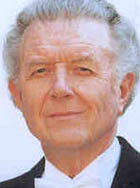 91. 1994 and 1995 see the last two Black Dyke victories at the contest under the baton of James Watson. Yorkshire Building Society band announce themselves as contenders as they come 3rd in 1994 and 2nd in 1995. They have yet to win the contest though.
91. 1994 and 1995 see the last two Black Dyke victories at the contest under the baton of James Watson. Yorkshire Building Society band announce themselves as contenders as they come 3rd in 1994 and 2nd in 1995. They have yet to win the contest though.
92. James Watson has a superb record at the Nationals with victories on six occasions – four with Desford and two with Black Dyke. He has also conducted the Parc and Dare band at the finals as well as taking Brighouse and Rastrick to 5th place in 1984.
93. The first woman to conduct at the Finals was Mrs Betty Stone who conducted Hanwell bands in 1977 and 1978. Linda Nicholson conducts Besses in 2002.
94. Brighouse and Rastrick won the titles in both 1997 and 1998 conducted by Allan Withington, but were pipped from making it a "hat trick" in 1998 when they came second to Foden's Courtois who won the title in their centenary year and the first time in 41 years.
95. The most wins belong to Black Dyke with 20, the Foden's with 11, Fairey's with 9, Brighouse with 7 and Munn and Feltons (GUS) with 6. Cory have 5, as do St. Hilda and Wingates and Desford have 4 apiece.
96. The top conductor is William Halliwell with 11 victories, followed by Harry Mortimer on 9, Peter Parkes and Fred Mortimer on 7, James Watson and Allan Withington on 6, William Rimmer on 5, Stanley Boddington and Arthur Kenney on 4 and Alex Mortimer, Major George Willcocks and Dr Nicholas Childs on 3.
97. The top marks awarded to the winners since 1945 have been 99 points for Grimethorpe in 1992. BAYV Cory in 2000, Desford in 1988, Black Dyke in 1977 and Fodens in 1950 have all been awarded 198 points. The lowest winning score was 180 points to Fairey's when they won in 1945.
98. In the past 27 years William Relton has appeared in the box on 20 times, whilst David Read has appeared 19 times.
99. Robert and Nicholas Childs are the first set of brothers to win the National title in consecutive years since Alex and Harry Mortimer in 1950 and 1951 – exactly 50 years previously. John Childs, the brothers father, also conducted Tredegar band to 6th place at the National Finals in 1977.
100. The First Prize of £2000 has been in place since 1980. On the economic fact that money loses half it's value every ten years, the top prize is now only worth in reality around £300 – less than was on offer in 1972. In real terms it should be around £12,000.
101. The top four bands in the prize list will pre qualify for the contest next year – although they will all have to compete at their respective Regional Championships.
102. Black Dyke will be making their 76th appearance having been formed as a brass band as far back as 1855. It is the record for the most appearances.
103. Yorkshire sends 4 bands to the Finals this year – Black Dyke, Grimethorpe, Carlton Main and Rothwell Temperance. Wales sends 3, as do the North West.
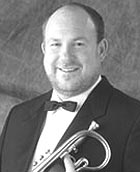 104. Steve Barnsley, soprano cornet of the BAYV Cory band was the first winner of the Best Instrumentlaist Prize awarded at the Finals in 2003. Peter Roberts followed him in 2004, Runar Valheim Varnes of the Leyland Band won it in 2005, Bert Van Thienen won it in 2006 with YBS Band and Michael Dodd with Grimethorpe in 2007..
104. Steve Barnsley, soprano cornet of the BAYV Cory band was the first winner of the Best Instrumentlaist Prize awarded at the Finals in 2003. Peter Roberts followed him in 2004, Runar Valheim Varnes of the Leyland Band won it in 2005, Bert Van Thienen won it in 2006 with YBS Band and Michael Dodd with Grimethorpe in 2007..
105. The Finals are held at the newly refurbished Royal Albert Hall - lottery money of over £25 million has been spent on the monument to Prince Albert, which was finished in 2004. The famous cramped changing rooms are no more, although the bands still do not have a warm up room and have to enter onto the stage through the little walkway tunnels at the back.
106. In 2006 there was no Gala Concert. The pre result hiatus was filled by a short concert by the 2005 winners Leyland and IP Brass, conducted by Ian Porthouse.
107. 2007 saw two debutants in the box with Derek Broadbent and Professor David King joining David Read in picking out the winners.
108. This year, James Gourlay becomes the latest debutant adjudicator in the box.















